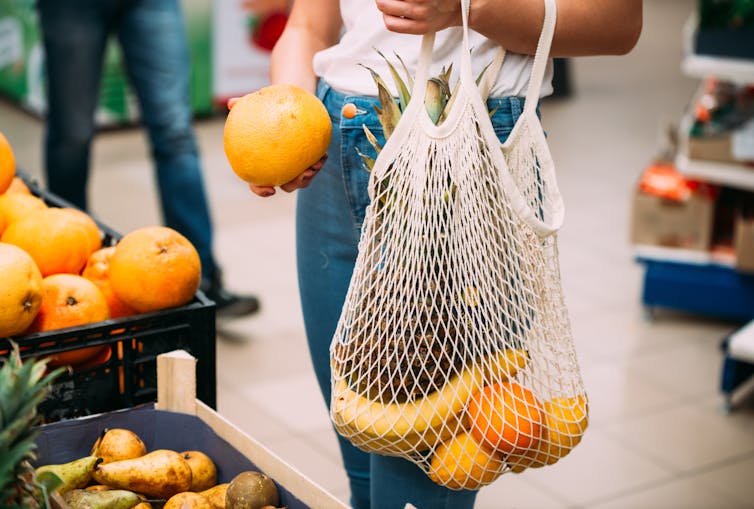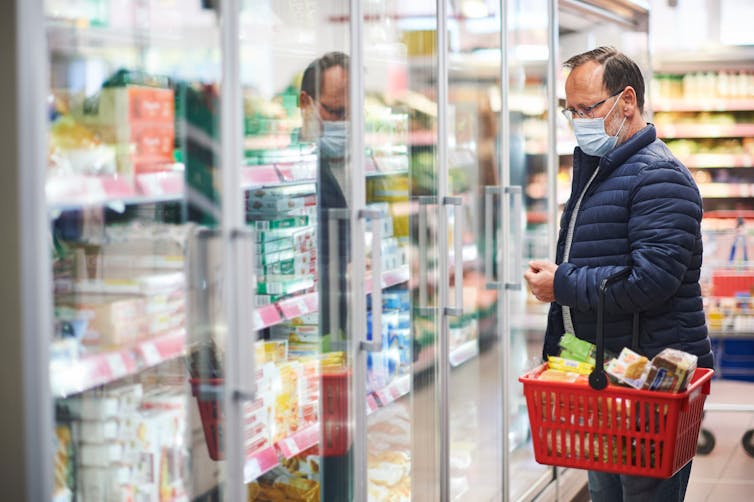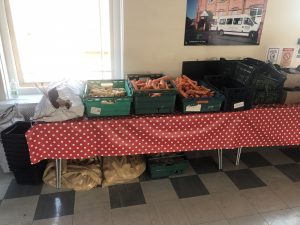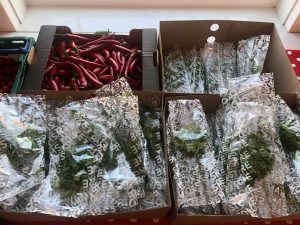Dr Rounaq Nayak writes for The Conversation about his research into the value of community food banks…
How community markets for all could be a sustainable alternative to food banks

Rounaq Nayak, Bournemouth University
The number of people using food banks in the UK has increased from 26,000 in 2008-09 to more than 100 times that in 2023. Nearly one in five British households experienced moderate to severe food insecurity in September 2022.
In the financial year to April 2023, Trussell Trust, the largest (but not the only) network of food banks in the UK, distributed emergency food parcels to nearly three million people.
Food banks provide free, pre-prepared parcels of food to those most in need. They have provided a great deal of support for low-income families, especially during the cost of living crisis.
However, they are not perfect. Food banks offer people little choice, are dependent on unreliable supply chains. Research has also shown that people who use food banks often experience shame and stigma when doing so.
My research, with colleague Heather Hartwell at Bournemouth University, has found a viable alternative. Community markets selling food and household items at subsidised rates to all could be a sustainable solution to the problems with existing food support programmes.
Food banks rely heavily on donations. But rising food prices means even would-be donors are struggling to buy that extra can of beans and other items. Beneficiaries of food banks also told us that parcels were mostly made up of dried, tinned and processed foods.
While it is important that parcels have a long shelf life, people experiencing food poverty want a choice of fresh and frozen food items, including meat. The constraints in the range and quality of food available are also associated with health problems such as diabetes, asthma and obesity.
Food banks also do not empower people who use them to become self-sufficient. Rather, they often result in long-term reliance on food aid. Hence, food banks offer temporary relief from hunger without addressing the bigger issues that lead to food insecurity.
Community markets
Community markets operate differently to food banks. They are open to everyone in the local community, regardless of income level, and provide a range of food choices along with other items such as school uniforms and toiletries.
We interviewed 38 people who regularly used or were involved in the operation of these programmes in the UK. Through these discussions, we assessed how well community markets address the challenges of food security, and found that they are a possible solution to the limitations of food banks and parcel distribution.
Community markets do not solely rely on donations from the public or businesses. They pay a subscription to charity networks such as FareShare, which provide the market with items in bulk, which are sold to the community at a subsidised rate. All revenue from sales is reinvested to pay for future bulk purchases.
People with low incomes who shop at community markets told us they enjoyed having food at affordable food prices and felt a stronger sense of autonomy, and being part of the community. They did not feel their reliance on food support was a barrier to being part of society. As one person said:
I very much prefer being able to choose my food instead of being given parcels. … It just feels dignified to be able to pay for goods, even if it is at subsidised rates, and then being able to choose what I want based on what I would like to eat.

Anna Nahabed/Shutterstock
Food for all
These markets can be used by people from across the community, including those on a higher income. People who were more well-off told us they wanted to shop at the markets because they felt they were giving back, spending their money to be reinvested in the programme:
I thought that people who would come to the market … would be very needy, not only financially but mentally as well but it isn’t like that … I like shopping here because the money I pay is invested back into the community.
Additionally, community markets serve as a hub, offering organised group activities and services for people, such as cooking and gardening classes, yoga and sewing. Through these activities, the community markets are tackling loneliness and other health issues – not just hunger.
Community markets are economically self-sufficient. They use revenue generated from selling products at subsidised rates to subscribe to charitable food surplus redistribution organisations. This financial independence sets them apart from food banks, which often rely on grants. They can also be environmentally sustainable, actively reducing food waste and their carbon footprint by redistributing surplus food to local emergency services and farms.
As more people rely on food aid, it’s important that local councils and national governments support alternatives to food banks. For the family struggling to fill the fridge or the student coping with higher rent, our findings show community markets could be of significant help, while allowing people to maintain their dignity and be part of their community.![]()
Rounaq Nayak, Lecturer in Sustainable Agri-Food Systems, Bournemouth University
This article is republished from The Conversation under a Creative Commons license. Read the original article.













 Dr. Ashraf cited on ‘Modest Fashion’ in The Guardian
Dr. Ashraf cited on ‘Modest Fashion’ in The Guardian NIHR-funded research launches website
NIHR-funded research launches website Academics write for newspaper in Nepal
Academics write for newspaper in Nepal New paper published on disability in women & girls
New paper published on disability in women & girls Global Consortium for Public Health Research 2025
Global Consortium for Public Health Research 2025 MSCA Postdoctoral Fellowships 2025 Call
MSCA Postdoctoral Fellowships 2025 Call ERC Advanced Grant 2025 Webinar
ERC Advanced Grant 2025 Webinar Horizon Europe Work Programme 2025 Published
Horizon Europe Work Programme 2025 Published Horizon Europe 2025 Work Programme pre-Published
Horizon Europe 2025 Work Programme pre-Published Update on UKRO services
Update on UKRO services European research project exploring use of ‘virtual twins’ to better manage metabolic associated fatty liver disease
European research project exploring use of ‘virtual twins’ to better manage metabolic associated fatty liver disease